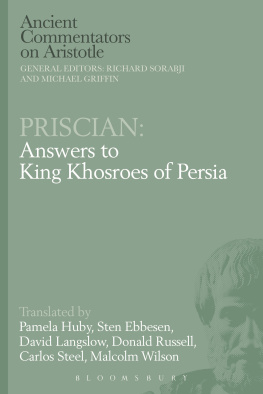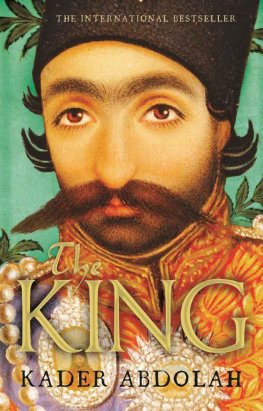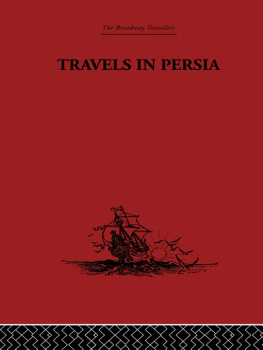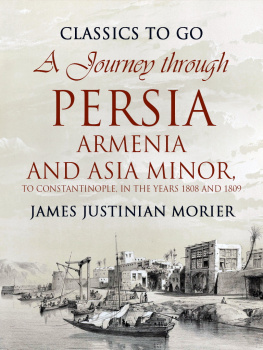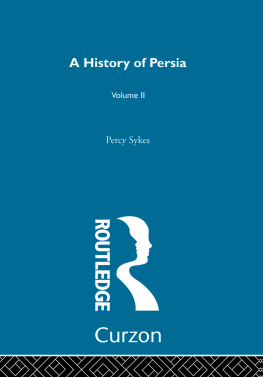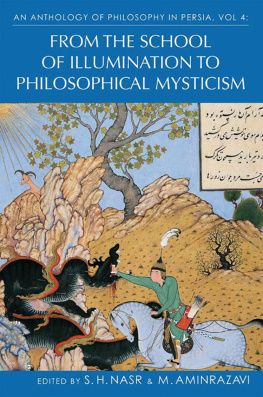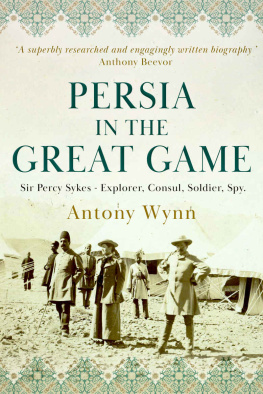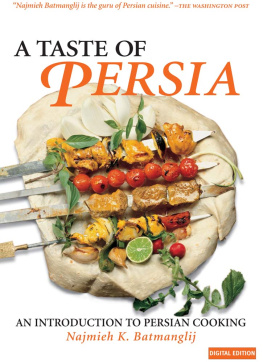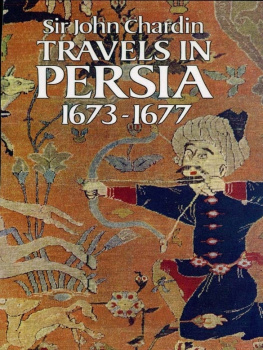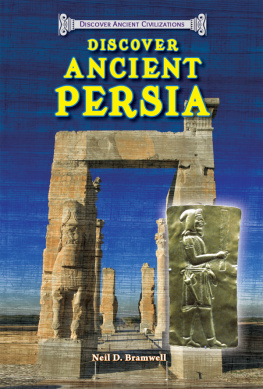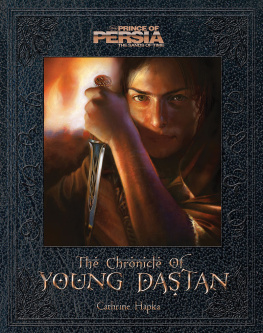Lydus Priscianus - Priscian: Answers to King Khosroes of Persia
Here you can read online Lydus Priscianus - Priscian: Answers to King Khosroes of Persia full text of the book (entire story) in english for free. Download pdf and epub, get meaning, cover and reviews about this ebook. year: 2016, publisher: Bloomsbury, genre: Religion. Description of the work, (preface) as well as reviews are available. Best literature library LitArk.com created for fans of good reading and offers a wide selection of genres:
Romance novel
Science fiction
Adventure
Detective
Science
History
Home and family
Prose
Art
Politics
Computer
Non-fiction
Religion
Business
Children
Humor
Choose a favorite category and find really read worthwhile books. Enjoy immersion in the world of imagination, feel the emotions of the characters or learn something new for yourself, make an fascinating discovery.
- Book:Priscian: Answers to King Khosroes of Persia
- Author:
- Publisher:Bloomsbury
- Genre:
- Year:2016
- Rating:4 / 5
- Favourites:Add to favourites
- Your mark:
- 80
- 1
- 2
- 3
- 4
- 5
Priscian: Answers to King Khosroes of Persia: summary, description and annotation
We offer to read an annotation, description, summary or preface (depends on what the author of the book "Priscian: Answers to King Khosroes of Persia" wrote himself). If you haven't found the necessary information about the book — write in the comments, we will try to find it.
Priscian: Answers to King Khosroes of Persia — read online for free the complete book (whole text) full work
Below is the text of the book, divided by pages. System saving the place of the last page read, allows you to conveniently read the book "Priscian: Answers to King Khosroes of Persia" online for free, without having to search again every time where you left off. Put a bookmark, and you can go to the page where you finished reading at any time.
Font size:
Interval:
Bookmark:
Ancient Commentators on Aristotle
GENERAL EDITORS: Richard Sorabji, Honorary Fellow, Wolfson College, University of Oxford, and Emeritus Professor, Kings College London, UK; and Michael Griffin, Assistant Professor, Departments of Philosophy and Classics, University of British Columbia, Canada.
This prestigious series translates the extant ancient Greek philosophical commentaries on Aristotle. Written mostly between 200 and 600 AD, the works represent the classroom teaching of the Aristotelian and Neoplatonic schools in a crucial period during which pagan and Christian thought were reacting to each other. The translation in each volume is accompanied by an introduction, comprehensive commentary notes, bibliography, glossary of translated terms and a subject index. Making these key philosophical works accessible to the modern scholar, this series fills an important gap in the history of European thought.
A webpage for the Ancient Commentators Project is maintained at ancientcommentators.org.uk and readers are encouraged to consult the site for details about the series as well as for addenda and corrigenda to published volumes.

Richard Sorabji
| Bywater | Bywater, I., Prisciani Lydi quae extant Metaphrasis in Theophrastum et Solutionum ad Chosroem liber, Supplementum Aristotelicum 1.2 (Berlin: Reimer, 1886) |
| Dbner | Dbner, F., Plotini Enneades cum S Porphyrii et Procli Institutiones et Prisciani Philosophi Solutiones (Paris: Didot, 1855), cited from Bywaters apparatus |
| Edelstein-Kidd | Edelstein, L., and Kidd, I. G., Posidonius I: The Fragments (Cambridge: Cambridge University Press, 1972), with translations in I. G. Kidd, Posidonius III: The Translation of the Fragments (Cambridge: Cambridge University Press, 1999) |
| FHSG | Fortenbaugh, W. W., Huby, P. M., Sharples, R. W., and Gutas, D., Theophrastus of Eresus: Sources for his Life, Writings, Thought, and Influence, 2 vols (Leiden: Brill, 1992) |
| Long-Sedley | Long, A. A., and Sedley, D. N., The Hellenistic Philosophers, 2 vols (Cambridge: Cambridge University Press, 1987) |
| SAW-Pos | Stephen White, Posidonius and Stoic Physics, in R. Sorabji and R. W. Sharples, eds, Greek and Roman Philosophy 100BC200AD, 2 vols (London: Institute of Classical Studies, 2007), vol. 1, pp 3576 |
| SVF | Stoicorum Veterum Fragmenta, ed. H. von Arnim, 4 vols (Leipzig: Teubner, 190324) |
[] Square brackets enclose words or phrases that have been added to the translation for purposes of clarity.
<> Angle brackets enclose conjectures relating to the Latin (and underlying Greek) text, i.e. additions to the transmitted text deriving from parallel sources and editorial conjecture, and transposition of words or phrases. Accompanying notes provide further details.
() Round brackets, besides being used for ordinary parentheses, contain transliterated Greek words.
Richard Sorabji
The Answers to King
The main controversy about Simplicius fellow-Athenian, Priscian, has been about whether he is the author of the commentary on Aristotles On the Soul which is ascribed to Simplicius. I have given my own affirmative opinion in the introduction to the new edition of Aristotle Transformed. The commentary on On the Soul and Priscians Paraphrase of Theophrastus on Sense Perception were discussed as part of that controversy. The present book is the third extant work of Priscians to be translated in the Ancient Commentators on Aristotle series: his Answers to King Khosroes.
Priscian was a member of the Athenian Neoplatonist school, when the the elect a unified Greek pagan philosophical position; it would not have been seen as a welcome opportunity for research leave. Priscian was one of the seven Athenians, including three known philosophers, who accepted the refuge offered at Ctesiphon by King Khosroes I (c. 501578 CE), the king of Persia, in 531, the first year of his reign. Priscian recorded his replies given to Khosroes questions about philosophy and science. The faade of Khosroes palace at Ctesiphon, a little south of the later city of Baghdad, was still standing at the end of the 20032010 invasion of Iraq, although surrounded by military operations.
If that is so, it is a further mark of cosmopolitanism that a Christian in Khosroes circle could explain pagan Greek philosophy to the Persian king in Persian, and then convert to Zoroastrianism.
According to Agathias Histories 2.30.3, the Athenians had thought they were going to the land of Platos Leibniz of the arrangements of Providence concerning dangerous animals. But on the whole, despite the many scientific books he consulted, he was less well informed.
Part of the Athenians desire to move on from Ctesiphon will have been due to the focus on questions about the physical world, which may suggest that they had not had forewarning of the questions. If the questions were not sent to Athens by Khosroes in advance and the answers prepared before they left, either they will have brought their library with them, or just possibly they will have written up the answers after they left and sent them back to Khosroes for translation into Persian, since we know that Simplicius at least (whether or not Priscian) wrote after they left, drawing on some extensive library. Agathias reasons for their all going home and saying goodbye to the barbarians hospitality (2.31.2), included Khosroes not understanding any of the higher (aiputera) things because he did not even share their beliefs (doxa), presumably about theological matters (3.31.1). But here Agathias is again going too far, because although Khosroes was soon afterwards to regard himself as a humble pupil of Uranius, he did get that visiting sceptic to debate higher matters, about the eternity of the world and a supreme principle, as well as about nature and coming into being, so he was not uninterested. It is not impossible that he had learnt about the higher matters from earlier talks with the Athenians, not included in what Priscian was commissioned to answer.
As to where the Athenians went after they left Khosroes in Ctesiphon, it is hard to speak for all of them. But Ilsetraut continuity is not, I think, necessary. Even in Athens the Platonist and Aristotelian schools had disappeared and been re-founded from time to time. But the earlier tradition in a site can recommend it as a site for refounding. So if Simplicius did set up a school, or use an existing library, his memory could have helped to encourage re-establishment even after discontinuities.
could only preserve intact the unintelligibility of the Latin. What turned out often to be needed was a retrotranslation, conjecturing what the original Greek could have been, and a translation into English based at least partly on that. I am indebted to the outstanding scholars who brought their knowledge of Greek, handwritten manuscripts, philosophy, and science to bear. Handwriting is important because the introduction of cursive script between the time of Priscian and his Latin translator would induce new types of miscopying.
Font size:
Interval:
Bookmark:
Similar books «Priscian: Answers to King Khosroes of Persia»
Look at similar books to Priscian: Answers to King Khosroes of Persia. We have selected literature similar in name and meaning in the hope of providing readers with more options to find new, interesting, not yet read works.
Discussion, reviews of the book Priscian: Answers to King Khosroes of Persia and just readers' own opinions. Leave your comments, write what you think about the work, its meaning or the main characters. Specify what exactly you liked and what you didn't like, and why you think so.

